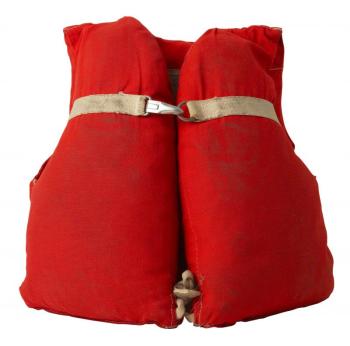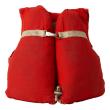Stay safe on coastal waters
Wed, 05/26/2021 - 1:00pm
As we near Memorial Day weekend and the unofficial start of the summer recreational boating season, the Maine Marine Patrol provides the following reminders for a safe, enjoyable experience on Maine’s coastal waters:
Wear a Life Jacket
- In Maine, all children 10 and under must wear a life jacket. Adults don’t have to wear them, but they must be available on board for every occupant.
- S. Coast Guard statistics show that drowning was the reported cause of death in four out of every five recreational boating fatalities in 2019, and that 86 percent of those who drowned were not wearing life jackets.
- New life jackets are much more comfortable, lightweight and stylish than the bulky orange style most boaters know. There are innovative options, such as inflatable life jackets, allowing mobility and flexibility for activities like boating, fishing, paddling or hunting, and are much cooler in the warmer weather.
Check Your Boat and Gear
- Safe boaters should also have working navigation lights, visual distress signals, sound signalling devices, VHF radio, cell phone, proper ventilation, and properly displayed registration numbers.
- A thorough check of fire extinguishers and flares should be done to make sure they work.
Plan Before You Go
- Always check the local marine forecast before heading out on Maine’s coastal waters.
- Boaters should file a float plan with a friend or relative, letting them know where you are going and when you plan to return
Paddle Safe
- Kayakers, canoeists and paddle boarders should always wear a life jacket.
- Bring a hand-held VHF radio and a cell phone in a waterproof case.
- Carry signalling devices (whistle, mirror, flares) in a pocket of your life jacket.
- A personal locator beacon will relay your precise location to rescue agencies if you’re in distress.
- Kayakers should always carry a paddle float and bilge pump.
- With ocean temperatures in many places less than 50 degrees, paddlers should dress for the water temperature and consider wearing a dry suit or a wet suit.
- Place a sticker on smaller craft like kayaks, canoes, and paddle boards, with contact information including a phone number.
- If Marine Patrol or Coast Guard finds one of these small vessels with nobody onboard, they can call the number and confirm whether the owner is missing, potentially avoiding an unnecessary search and rescue operation.
Don’t Boat Under the Influence
- Another important safety issue is drinking and boating. According to Coast Guard statistics, alcohol is a leading contributor in deadly boating accidents.
- Marine Patrol will prosecute people who are under the influence while operating a boat.
For information on Maine’s plan to protect public health during the busy tourism season, review Moving Maine Forward. Recreational boaters should also refer to US CDC guidelines to prevent the spread of COVID-19.
For more information on recreational boating safety, visit the Maine Department of Marine Resources website at http://www.maine.gov/dmr/marine-patrol/recboatingsafety.html
Event Date
Address
United States
Standard Post




































